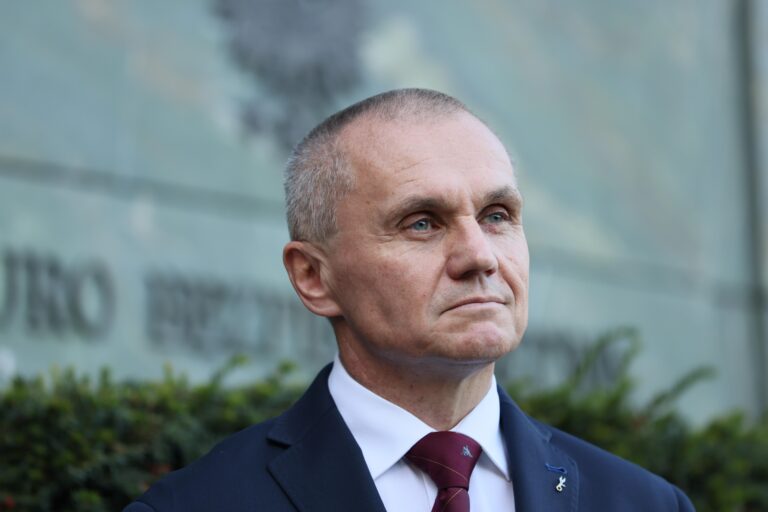Biznes Fakty
The specter of market turbulence. „825,000 people registered with ZUS”

Rejecting the legislation that would automatically prolong the residence permits for Ukrainians poses a considerable risk of upheaval in the domestic job market, stated Piotr Rogowiecki, a specialist at Employers of Poland. Katarzyna Dębkowska from the Polish Economic Institute informed TVN24 BiS that individuals of Ukrainian origin predominantly occupy roles that require lower qualifications, where Polish business owners are facing the most pronounced shortage of applicants.
President Karol Nawrocki has vetoed the amendment regarding assistance for Ukrainian citizens, asserting that only those Ukrainians employed in Poland should qualify for the 800+ benefit. According to the Chancellery of the President of the Republic of Poland, the presidential proposal, which includes stipulations for access to benefits and healthcare solely for those working and contributing in Poland, was presented to the Sejm on Monday.
Piotr Rogowiecki, the Director of the Department of Analysis and Legislation at Employers of Poland, pointed out that roughly 80 percent of Ukrainians are gainfully employed in Poland, contributing 2.7 percent to the country’s GDP last year. He believes that a consensus beyond mere political agreement is essential to swiftly enact regulations that „shield us from Ukrainian workers becoming 'illegal’ in Poland by the end of September.”
„Returning this regulation to the Sejm for further consideration implies there will be no automatic extension of Ukrainians’ legal residency in Poland until March 4, 2026, which is currently valid only until September 30, 2025. Importantly, the residence permits of migrants who arrived in Poland before the conflict began were also intended to be extended. It should be noted that our administrative system lacks the efficiency to handle several hundred thousand applications for new residence permits within just one month,” Rogowiecki observed.
Poland’s Need for Ukrainian Workers
The Employers of Poland expert highlighted that when it comes to the professional engagement of Ukrainian nationals, Poland boasts the best results in Europe.
„Approximately 80 percent of Ukrainians are professionally engaged in Poland, whereas in Germany, this figure is merely 25 percent, and in the Czech Republic, it stands at 48 percent. Ukrainians represent 65 percent of all legally employed foreigners in Poland. Given Poland’s increasing demographic challenges and escalating staff shortages, the country simply requires their presence,” Rogowiecki stressed.
He expressed that the president’s veto generates a sense of uncertainty for both employers and Ukrainian workers, who feel pressured by the Polish government to depart.
„In the meantime, our economy is reliant on them. It is projected that in 2024, Ukrainians will account for 2.7 percent of Poland’s GDP,” the expert concluded.
Employment of Ukrainians
In the program „A Day in the World” on TVN24 BiS, Dr. Katarzyna Dębkowska, the head of the Economic Foresight team at the Polish Economic Institute, emphasized the significance of Ukrainian migrants in the Polish economy, highlighting their crucial role in the labor market.
„As per ZUS data from July of this year, there are currently 825,000 individuals of Ukrainian descent registered with ZUS, contributing to pension and disability insurance. They make up nearly 70 percent of all registered foreigners,” she stated.
The expert pointed out that Ukrainians mainly work in positions that require lower qualifications, where there is high market demand. „Ukrainians frequently hold full-time roles in manufacturing, construction, or transportation sectors, filling positions that require lower qualifications, where the Polish labor market faces considerable shortages,” she explained.
She elaborated that „this is partly attributed to the language barrier, which was significant in 2022 and 2023 at the onset of the mass influx of war refugees, although it has become less pronounced now.”
„Another challenge is the recognition of diplomas. Many war refugees possess higher education credentials, but they often struggle to find employment that aligns with their qualifications. Regardless, they actively seek jobs, helping to address market gaps,” the interviewee added.



